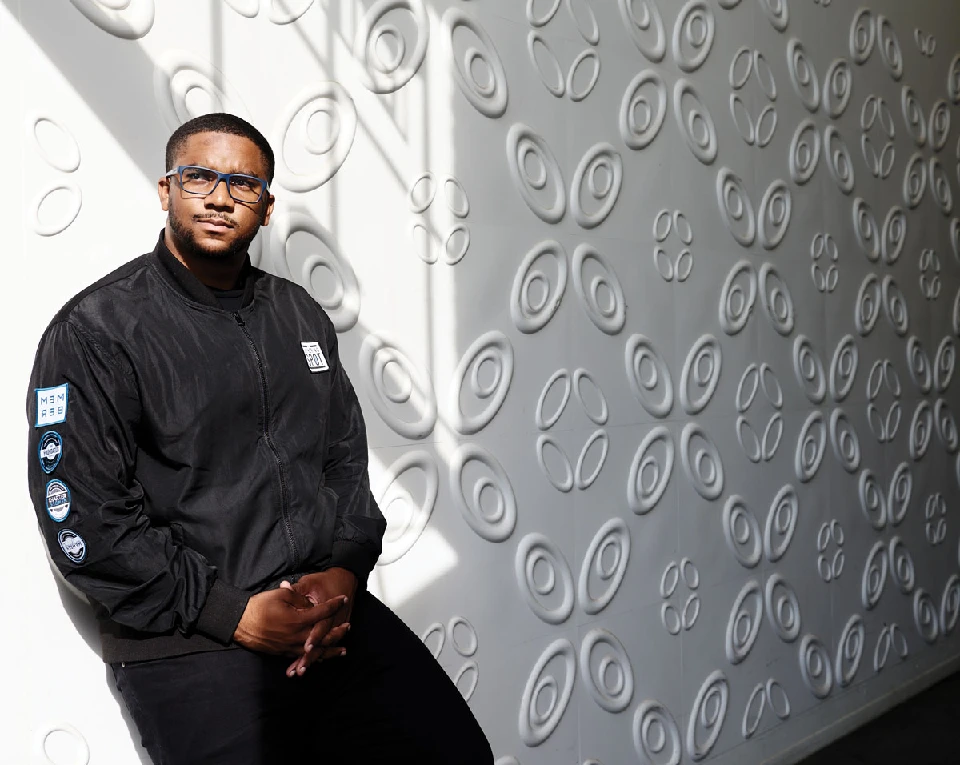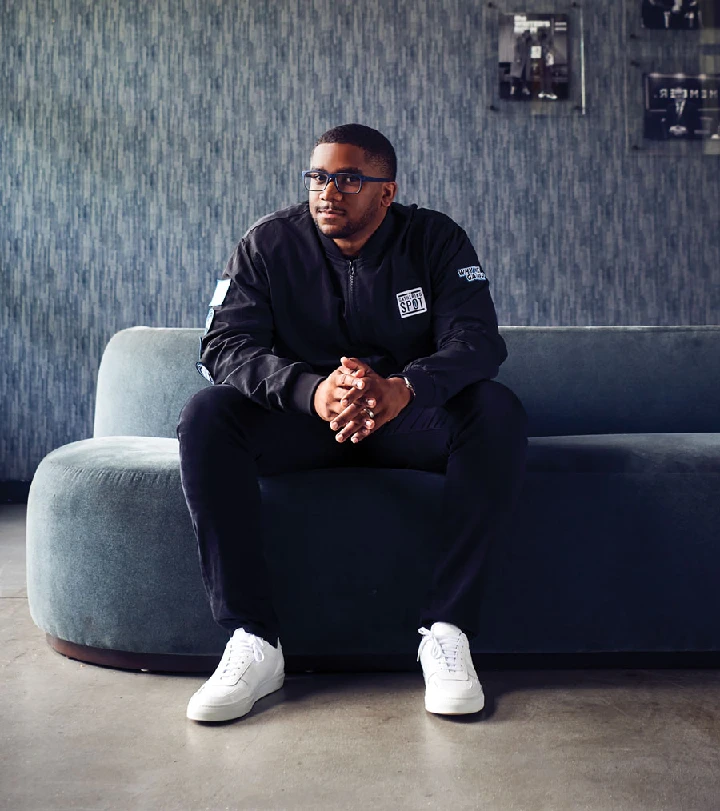Here’s the single best way to help Black people, according to Ryan Wilson
(Hint: It’s not by tweeting “Black Lives Matter.”)
AUGUST 13, 2020

Ryan Wilson
Ryan Wilson is cofounder and CEO of the Gathering Spot, a 3,000-member private club that also functions as a think tank, community center, and business incubator and has hosted Ambassador Andrew Young, T.I., Stacey Abrams, Joe Biden, and Will Packer. In early 2019, Wilson became part owner of the A3C Conference and Festival, which draws 30,000 attendees to Atlanta to explore the intersection of music, culture, tech, and innovation—and to check out sets by the likes of Nas, Lil Wayne, and Wu-Tang Clan. In the midst of the pandemic and the protests over racial injustice, the Gathering Spot now has a stronger-than-ever focus on solutions to the systemic problems plaguing Black people.
I’m from Atlanta and grew up wanting to be an attorney. The reason for that centered around my belief that it was the best way to help people. All of my heroes growing up were civil rights figures, and many of them had law degrees.
Between my first and my second year of law school at Georgetown, I was working at a law firm back here in Atlanta. It was the same summer as the trial of Trayvon Martin’s killer. I got an email from some of my friends when George Zimmerman was acquitted, and they were like, Hey, what are we going to do? What I wrote back to them was the start of the Gathering Spot.
I had an idea for a space that could serve as a meeting place for people that want to create, share, and listen to ideas that can change the world—taking what we loved about the university setting and giving people a space where they can interact with others and turn dialogue into action. They could come to discuss issues in our community and ideas that can make our community better. We could bring in members to lead and attend sessions on how to write a business plan and go through all the different ideas. We now have 100 people on our team and counting.
Atlanta is one of the few cities that has a significant enough Black population to where we could engage in these conversations meaningfully. We have positioned ourselves as a city that engages in conversations around race relations and economics, but the whole “City Too Busy to Hate”—that’s a false narrative.
Atlanta, for five years now, has been the city with the most severe income inequality in the nation. This city cannot prosper with the type of inequality that we have here. It is not possible. We will never be able to get to our full potential when so much disparity exists. We’re now in the worst economic event of our lifetimes, and we cannot continue to act like this is not a collective problem. We’ve ignored that there are people in our city and communities who are struggling, whom we have historically neglected. We just can’t afford to do so anymore.
“I think that the mistake we’re making right now is to assume that our gestures or statements are enough. They’re not.”
Even pre-COVID, Black folks didn’t have access to adequate healthcare, to equal education, to healthy food, to stable housing. Those who already didn’t have much cannot be expected to have even less. I don’t know a better way to say it: We’re talking about a several-hundred-year journey to get to a place where folks still don’t have access to basic resources. That’s unacceptable.
We’re at a point right now where we’re going to have to reconcile this system that has left Black folks on the outside throughout our history as a nation. This is the moment when everything is going to come to a head. It is coming to folks’ doorsteps because, frankly, at this point, it has to. We, right now, as a community, have to decide what we want this city to be moving forward.
The conversation we need to have is about resources. It’s about white folks in our community having access to a ton of them. And Black folks—historically, due to a system that’s stacked against them—not having any. We could talk about health, education, homeownership—pick any social issue that you want to. There’s a reason why Black folks are always on the worst end of all of those statistics: We have a system that routinely keeps Black folks from being able to participate in it.
How is it that in 1865, Black folks owned one half of 1 percent of the nation’s wealth and now, in 2020, own 1.5 percent of the nation’s wealth? That’s a 1 percentage point gain in 155 years—despite this idea that there’s been a ton of progress.
If homeownership primarily has been the way that Americans have made money and built wealth in their families, and if you prevent Black folks from being able to purchase a home, you do significant damage to their ability to build wealth. Why does wealth matter? It matters because it impacts nearly every other system that folks want to participate in. It has an impact on your schools, and, unfortunately, it has an impact on your healthcare.
This system has been built so effectively that it actually doesn’t rely on individual actors to continue to operate it. That’s the brilliant move of racism over the last 100 years. It used to require overt action. But once you institutionalize racism, it’s like being on autopilot—like driving a Tesla. Your hands don’t have to be on the steering wheel anymore. The system is working toward the desired outcome without you having to do anything to aid it.

I think that the mistake we’re making right now is to assume that our gestures or statements are enough. They’re not. Actually, in some ways, they make things worse. Because when you’re trying to dismantle a system of oppression but you focus on performative gestures—renaming buildings, tearing down statues, declaring solidarity on social networks and with company mission statements—you never actually talk about the root causes of why things are the way they are. We’re confusing the performative gesture for erasing the system. The system still exists.
My very short message to the white community is that we’re at a point right now where both your time and your treasure are needed. We need specific capital injected—not symbolic efforts, not statements.
For most Black folks in Atlanta, their dollar doesn’t last in their community but for a couple of hours. That’s because there are too few places to spend that dollar locally, in a way that benefits their neighbors, and too little opportunity to save or invest that dollar, because there aren’t enough dollars to go around. And this is where we get back to COVID. What we’re facing right now is even fewer resources coming into communities.
The conversation that we have to have collectively is, what happens when a side of town does not have basic resources already established within it—and then, all resources that were coming into it, which were minimal, get cut off? That’s what this moment is about: actually rolling up our sleeves, having hard conversations, doing the tough work, and talking about why it’s necessary to build Black businesses and build Black wealth in our communities. Then, the conversation can shift from what someone is going to do for us to what we can do with our own resources.
If you consider yourself an ally, we’re going to measure allyship by activity. So, let’s look at your part. How much money last year did you spend with Black-owned business personally? How intentional were you with your personal spending? I’m not going to suggest the go-read-a-book or go-watch-a-movie or go-make-a-friend route. Those are all bonus points if you can do it. That would be great, but what we immediately need right now is to allocate our resources differently.
The person who has influence inside of a company or organization has the ability to do the same thing: Apply that same sort of intention to the way you direct resources. To dismantle part of the system, it is not about well wishes. It never has been. It’s about intentionally looking at where resources are currently allocated and how they specifically can be allocated differently—or where resources can be built in communities outside of your own.
I don’t suggest that what I just said is easy, but if you are a person who says that you would like to engage, that’s what engaging is. It’s not tweeting out “Black Lives Matter.” After you post your black square on Instagram, if you aren’t intentional about making sure that you participate differently in the system, if you aren’t making different decisions, building different relationships, then the system still will be there.
Look at where you have the ability to influence where resources go, and try to make sure that someone who historically would not have had that resource gets it. That’s it. And for folks to say, I don’t know how to do that—well, to me, that is part of the problem. That’s a form of privilege in and of itself.
This article appears in our September 2020 issue.